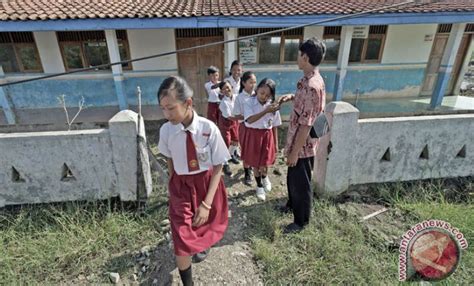Pemerintah Cari Solusi Guru Honor Daerah Terpencil di Sintang
The dedication of teachers in remote areas is invaluable to the nation's educational progress. However, the challenges faced by honorarium teachers in these isolated regions, particularly in Sintang, are significant. This article explores the government's efforts to address the issues confronting these dedicated educators.
Understanding the Plight of Honorarium Teachers in Remote Sintang
Many honorarium teachers in remote areas of Sintang, like other parts of Indonesia, struggle with several interconnected challenges:
-
Limited Access to Resources: These teachers often lack adequate teaching materials, technology, and infrastructure. The remoteness of their location makes it difficult to receive essential supplies and updates.
-
Low Remuneration: The honorarium they receive is often insufficient to cover their basic needs and living expenses, especially considering the added costs of living in a remote area.
-
Isolation and Lack of Support: The feeling of isolation can be profound, impacting their morale and well-being. Access to professional development opportunities and support networks is often limited.
-
Difficult Living Conditions: Remote areas frequently lack basic amenities like reliable transportation, healthcare, and adequate housing. This creates significant hardships for the teachers and their families.
Government Initiatives to Improve the Situation
The Sintang government, aware of these issues, is actively seeking solutions to improve the lives and working conditions of these dedicated teachers. These efforts include:
-
Increased Funding: The allocation of funds specifically targeted at improving the working conditions and compensation of honorarium teachers in remote areas. This increase aims to make their jobs more sustainable and attractive.
-
Improved Infrastructure: Investment in infrastructure projects to enhance access to the remote schools. This might include building better roads, providing reliable internet access, and improving transportation networks.
-
Provision of Teaching Resources: Increased provision of essential teaching materials and resources. This ensures teachers have the necessary tools to deliver effective education to their students, regardless of their location.
-
Professional Development Programs: The implementation of targeted professional development programs specifically designed for teachers in remote areas. These programs can be delivered online or through occasional visits from educational specialists.
-
Incentive Programs: The introduction of incentive programs to attract and retain qualified teachers in remote areas. This may involve offering additional benefits, bonuses, or opportunities for career advancement.
The Long-Term Vision: Sustainable Education in Remote Areas
The government's commitment to finding a sustainable solution for honorarium teachers in remote areas of Sintang reflects a broader national goal – ensuring equitable access to quality education for all Indonesian children, regardless of their geographical location. The success of these initiatives hinges not just on financial investment, but also on continuous monitoring, evaluation, and collaboration with local communities and educational stakeholders.
Conclusion: A Collaborative Effort for Educational Equity
Addressing the challenges faced by honorarium teachers in remote Sintang is a complex and multifaceted undertaking. It requires a collaborative effort involving the government, local communities, NGOs, and other stakeholders. The commitment shown by the Sintang government in actively seeking solutions is a positive step towards ensuring that all children, regardless of where they live, have access to quality education provided by well-supported and appreciated teachers.
